第39章 CHAPTER VIII(5)
"Can't you fellows understand a joke? It's like being out with a couple of confounded old women," saying which, he started off across the bridge, leaving us to follow.
"I am so glad that was only a joke of yours," said Harris, on our overtaking him. "I knew a case of softening of the brain that began--"
"Oh, you're a silly ass!" said George, cutting him short; "you know everything."
He was really most unpleasant in his manner.
We took him round by the riverside of the theatre. We told him it was the shortest way, and, as a matter of fact, it was. In the open space behind the theatre stood the second of these wooden apparitions. George looked at it, and again stood still.
"What's the matter?" said Harris, kindly. "You are not ill, are you?"
"I don't believe this is the shortest way," said George.
"I assure you it is," persisted Harris.
"Well, I'm going the other," said George; and he turned and went, we, as before, following him.
Along the Ferdinand Strasse Harris and I talked about private lunatic asylums, which, Harris said, were not well managed in England. He said a friend of his, a patient in a lunatic asylum - George said, interrupting: "You appear to have a large number of friends in lunatic asylums."
He said it in a most insulting tone, as though to imply that that is where one would look for the majority of Harris's friends. But Harris did not get angry; he merely replied, quite mildly:
"Well, it really is extraordinary, when one comes to think of it, how many of them have gone that way sooner or later. I get quite nervous sometimes, now."
At the corner of the Wenzelsplatz, Harris, who was a few steps ahead of us, paused.
"It's a fine street, isn't it?" he said, sticking his hands in his pockets, and gazing up at it admiringly.
George and I followed suit. Two hundred yards away from us, in its very centre, was the third of these ghostly statues. I think it was the best of the three--the most like, the most deceptive. It stood boldly outlined against the wild sky: the horse on its hind legs, with its curiously attenuated tail; the man bareheaded, pointing with his plumed hat to the now entirely visible moon.
"I think, if you don't mind," said George--he spoke with almost a pathetic ring in his voice, his aggressiveness had completely fallen from him,--"that I will have that cab, if there's one handy."
"I thought you were looking queer," said Harris, kindly. "It's your head, isn't it?"
"Perhaps it is," answered George.
"I have noticed it coining on," said Harris; "but I didn't like to say anything to you. You fancy you see things, don't you?"
"No, no; it isn't that," replied George, rather quickly. "I don't know what it is."
"I do," said Harris, solemnly, "and I'll tell you. It's this German beer that you are drinking. I have known a case where a man--"
"Don't tell me about him just now," said George. "I dare say it's true, but somehow I don't feel I want to hear about him."
"You are not used to it," said Harris.
"I shall give it up from to-night," said George. "I think you must be right; it doesn't seem to agree with me."
We took him home, and saw him to bed. He was very gentle and quite grateful.
One evening later on, after a long day's ride, followed by a most satisfactory dinner, we started him on a big cigar, and, removing things from his reach, told him of this stratagem that for his good we had planned.
"How many copies of that statue did you say we saw?" asked George, after we had finished.
"Three," replied Harris.
"Only three?" said George. "Are you sure?"
"Positive," replied Harris. "Why?"
"Oh, nothing!" answered George.
But I don't think he quite believed Harris.
From Prague we travelled to Nuremberg, through Carlsbad. Good Germans, when they die, go, they say, to Carlsbad, as good Americans to Paris. This I doubt, seeing that it is a small place with no convenience for a crowd. In Carlsbad, you rise at five, the fashionable hour for promenade, when the band plays under the Colonnade, and the Sprudel is filled with a packed throng over a mile long, being from six to eight in the morning. Here you may hear more languages spoken than the Tower of Babel could have echoed. Polish Jews and Russian princes, Chinese mandarins and Turkish pashas, Norwegians looking as if they had stepped out of Ibsen's plays, women from the Boulevards, Spanish grandees and English countesses, mountaineers from Montenegro and millionaires from Chicago, you will find every dozen yards. Every luxury in the world Carlsbad provides for its visitors, with the one exception of pepper. That you cannot get within five miles of the town for money; what you can get there for love is not worth taking away.
Pepper, to the liver brigade that forms four-fifths of Carlsbad's customers, is poison; and, prevention being better than cure, it is carefully kept out of the neighbourhood. "Pepper parties" are formed in Carlsbad to journey to some place without the boundary, and there indulge in pepper orgies.
Nuremberg, if one expects a town of mediaeval appearance, disappoints. Quaint corners, picturesque glimpses, there are in plenty; but everywhere they are surrounded and intruded upon by the modern, and even what is ancient is not nearly so ancient as one thought it was. After all, a town, like a woman, is only as old as it looks; and Nuremberg is still a comfortable-looking dame, its age somewhat difficult to conceive under its fresh paint and stucco in the blaze of the gas and the electric light. Still, looking closely, you may see its wrinkled walls and grey towers.